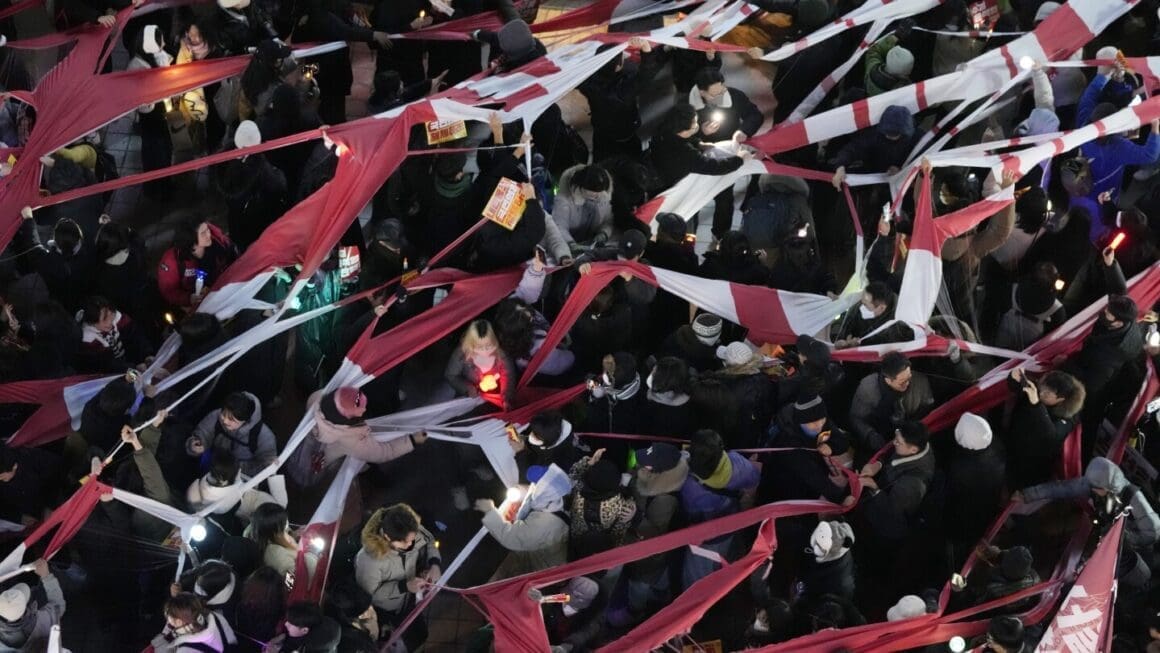In a dramatic turn of events, South Korean prosecutors are moving to formally arrest the former defense minister, Kim Yong Hyun, amid allegations of a clandestine imposition of martial law orchestrated in concert with President Yoon Suk Yeol. This unprecedented action has unleashed a wave of public outcry and provoked significant protests across the nation, as citizens and political experts grapple with the implications of such a bold political maneuver.
The call for the arrest comes as investigative authorities delve into whether the former defense minister’s actions, along with those of President Yoon, amounted to rebellion. Notably, the martial law, the country’s first in over 40 years, was imposed for a brief six-hour window but has left a significant impact on South Korea’s political landscape. Authorities are scrutinizing the actions of those involved, with the Justice Ministry imposing a travel ban on Yoon and eight others, naming them as principal suspects.
The Seoul Central District Court is presently examining a request from prosecutors for the detention of Kim Yong Hyun, who is accused of having advised President Yoon to declare martial law and dispatching military forces to the National Assembly to prevent legislative activities. Although lawmakers eventually convened and unanimously nullified Yoon’s mandate, the episode has stirred political tensions and sparked demands for accountability.
“I deeply apologize for causing significant anxiety and inconvenience,” stated Kim Yong Hyun, taking full responsibility for the martial law declaration. He has pleaded for leniency for the soldiers tasked with enforcing the directive, emphasizing that they were merely following orders. Kim has been detained since Sunday, and if the arrest warrant is granted, he will be the first to be formally taken into custody in this ongoing investigation.
During a recent parliamentary session, Kwak Jong-keun, a senior commander, revealed that he was instructed by Kim Yong Hyun to bar lawmakers from the parliamentary chamber, a move intended to prevent the necessary quorum to counteract the martial law decree. Meanwhile, counterintelligence officer Kim Dae-woo testified that discussions were held regarding the potential detention of politicians in an army bunker following the imposition of martial law.
These revelations have intensified the calls from opposition lawmakers, who are advocating for an independent special counsel to lead the investigation, expressing skepticism over the impartiality of public prosecutors given President Yoon’s previous role as prosecutor-general. The opposition-controlled parliament has already taken steps to appoint such a counsel.
The martial law decree, according to many legal experts and opposition groups, was unconstitutional under South Korean law, which permits martial law only under circumstances of war or a substantial national crisis – conditions not met by the current scenario. Critics argue that using military force to hinder parliamentary operations constitutes rebellion, as the South Korean Constitution prohibits suspension of parliamentary activities in this manner.
As President Yoon Suk Yeol navigates this legal and political tempest, his immunity from prosecution does not extend to charges of rebellion or treason. This unique circumstance has led to discussions on how authorities might proceed with questioning and possibly detaining him. However, the potential for confrontations with presidential security poses significant challenges.
With impeachment being a realistic threat after narrowly avoiding it in a recent vote due to a governing party boycott, President Yoon’s political future hangs in the balance. Should impeachment proceed, his executive powers would be temporarily suspended pending the Constitutional Court’s decision on whether to reinstate or permanently remove him from office, potentially triggering fresh elections.
The unfolding drama in South Korea underscores the fragility of democratic institutions when faced with internal power struggles. The pursuit of justice in this high-stakes situation will test the resilience of South Korea’s legal system and its commitment to upholding constitutional governance.
Source: Apnews














